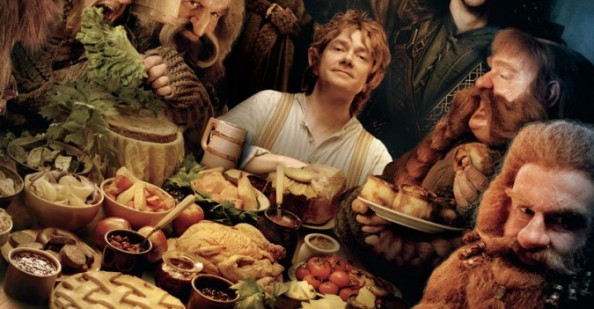David Russell Mosley

Eastertide
Ascension Day
The Edge of Elfland
City, State/County
Dear Friends and Family,
As various previous letters of mine have indicated, I am increasingly becoming swayed by the arguments of distributism. However, so many of you my friends and family don’t quite know what I mean when I say distributism. Now, it should be stated upfront that there is often not one definition of distributism, it has different expressions and slightly different emphases with different people or groups. Yet they all share a core and an origin and it is that I want to share with you now. Hopefully, I will do it justice and perhaps convince some of you to at least spend more time reading distributists as I have been doing when taking much needed mental breaks from my thesis (like right now).
Distributism, as the name would suggest, is about distribution, but distribution of what you might ask? Well, I’ll tell you, the distribution of property and by property, I mean land primarily. Distributism holds as its seminal text the papal encyclical Rerum novarum written by Pope Leo XIII on 15 May 1891. The Pope Leo, in this text, is writing concerning the woes of both capitalism and socialism. His concern is primarily with the working classes desiring justice for them as he writes: ‘Among the many and grave duties of rulers who would do their best for the people, the first and chief is to act with strict justice––with that justice which is called distributive––toward each and every class alike.’1 The pope was concerned with the working man’s ability to own land. It is worth quoting him at length:
‘It is surely undeniable that, when a man engages in remunerative labor, the impelling reason and motive of his work is to obtain property, and thereafter to hold it as his very own. If one man hires out to another his strength or skill, he does so for the purpose of receiving in return what is necessary for the satisfaction of his needs; he therefore expressly intends to acquire a right full and real, not only to the remuneration, but also to the disposal of such remuneration, just as he pleases. Thus, if he lives sparingly, saves money, and for greater security, invests his savings in land, the land, in such case, is only his wages under another form; and consequently, a working man’s little estate thus purchased should be as completely at his full disposal as are the wages he receives for his labor.’2
While the pope doesn’t specify to what end this land should be used in this passage, he has in mind that it is to be used toward self-sufficiency by the growing of fruits and vegetables and the raising of some little livestock (chickens, a few pigs, and/or a cow).3 For the pope, the right to possess property is a natural right (one can perhaps see some Locke behind this, the right to life, liberty, and the pursuit of property, which the Declaration of Independence altered to happiness, but I’m not sure the pope is following a Lockean line of thinking; I’ll need to study this more myself).4 Much of the pope’s understanding here is based in the family as the foundation stone for society.5 Society begins in the family and moves out from there, this gives the individual family a State-like status. Again to quote him at length:
‘A family, no less than a State, is, as We have said, a true society, governed by an authority peculiar to itself, that is to say, by the authority of the father. Provided, therefore, the limits which are prescribed by the very purposes for which it exists be not transgressed, the family has at least equal rights with the State in the choice and pursuit of the things needful to its preservation and its just liberty. We say, “at least equal rights”; for, inasmuch as the domestic household is antecedent, as well in idea as in fact, to the gathering of men into a community, the family must necessarily have rights and duties which are prior to those of the community, and founded more immediately in nature. If the citizens, if the families on entering into association and fellowship, were to experience hindrance in a commonwealth instead of help, and were to find their rights attacked instead of being upheld, society would rightly be an object of detestation rather than of desire.’6
So society exists in order to help safeguard against this mistreatment of the working class, of the family, and to help ensure that as many people as possible can become landowners. There’s much more to Rerum novarum, but you’ll just have to read it and the other documents that make up Catholic Social Teaching for yourselves (I have a group on Facebook which is doing just that, so feel free to join us). This is where the distributists come in.
G. K. Chesterton and Hilaire Belloc are the two names that come up most often when one searches out information concerning distributism. These British men and Christians, along with others sought to put the pope’s ideas into practice in turn of the century England (and elsewhere, the Catholic Workers Movement in America founded by Dorothy Day is an American example of these same ideals). Through various writings and periodicals, many of which can be found at the currently dormant Distributist Review, these men and others sought to spread the sensibility of distributism. At the end of the day, this is what distributism is: a sensibility. It is not a political party nor even, strictly speaking, an economic system since it is more about a way of living. Chesterton believed that you could not impose distributism on people, you could only encourage them to live it. How does one begin to live it, though?
I think the answer to this must be incrementally. One must begin with the family. I don’t think it can truly begin at any smaller stage, individuals can do much, but this is an inherently social sensibility (Artur Rosman has written convincingly on the idea that the Church ought to replace the Family; and so one could suggest that the church, locally speaking, would also be a valid starting point). The family, and/or the church, ought to strive to live locally, to support local businesses, local farmers, and help local families get land on which to grow food. My wife and I, for instance, since we don’t even rent our own home but are living with family while I finish my PhD, have rented a 300sqft plot of land on which to grow our own fruits and vegetables. It’s our first time with a plot this large and we may very well fail, but beginning is almost more important than succeeding, at first anyway. From the family level one perhaps should move to the local community, your town or county encouraging locally owned businesses to come in and thrive, in general to encourage local-mindedness. Where it goes from there? I don’t know. But we must take the first steps.
If you have any interest in distributism, please do get in touch (especially if you happen to live near me in the greater Nashua area in New Hampshire) and in the mean time check out some of these online resources. I’ll likely be posting about this again as I will be having several discussions with friends and strangers who have an interest in or are even already proponents of distributism (to those for whom this will mean something, I will be meeting with Dr William Edmund Fahey, president of Thomas More College of Liberal Arts here in NH soon to discuss Chesterton and distributism).
Distributist Links
From Letters to the Edge of Elfland
The Enchantment of Creation Or, I Do Believe in Faerie
On The Economics of Elfland: In Honour of J. R. R. Tolkien’s Birthday
Cottage Economy: A Mini Book Review
From People Who Know More than I Do:
The Distributist Review
Practical Distributism
Distributism on Ethika Politika
Sincerely yours,
David
1 Pope Leo XIII,Rerum novarum [Encyclical on Capital and Labor], Vatican Website, May 15 1891, 33, accessed 14 May 2015, http://w2.vatican.va/content/leo-xiii/en/encyclicals/documents/hf_l-xiii_enc_15051891_rerum-novarum.html.
2 Pope Leo XIII,Rerum novarum [Encyclical on Capital and Labor], Vatican Website, May 15 1891, 5, accessed 14 May 2015, http://w2.vatican.va/content/leo-xiii/en/encyclicals/documents/hf_l-xiii_enc_15051891_rerum-novarum.html.
3 Pope Leo XIII,Rerum novarum [Encyclical on Capital and Labor], Vatican Website, May 15 1891, 9, accessed 14 May 2015, http://w2.vatican.va/content/leo-xiii/en/encyclicals/documents/hf_l-xiii_enc_15051891_rerum-novarum.html.
4 Pope Leo XIII,Rerum novarum [Encyclical on Capital and Labor], Vatican Website, May 15 1891, 6, accessed 14 May 2015, http://w2.vatican.va/content/leo-xiii/en/encyclicals/documents/hf_l-xiii_enc_15051891_rerum-novarum.html.
5 Pope Leo XIII,Rerum novarum [Encyclical on Capital and Labor], Vatican Website, May 15 1891, 12, accessed 14 May 2015, http://w2.vatican.va/content/leo-xiii/en/encyclicals/documents/hf_l-xiii_enc_15051891_rerum-novarum.html.
6 Pope Leo XIII,Rerum novarum [Encyclical on Capital and Labor], Vatican Website, May 15 1891, 13, accessed 14 May 2015, http://w2.vatican.va/content/leo-xiii/en/encyclicals/documents/hf_l-xiii_enc_15051891_rerum-novarum.html.









